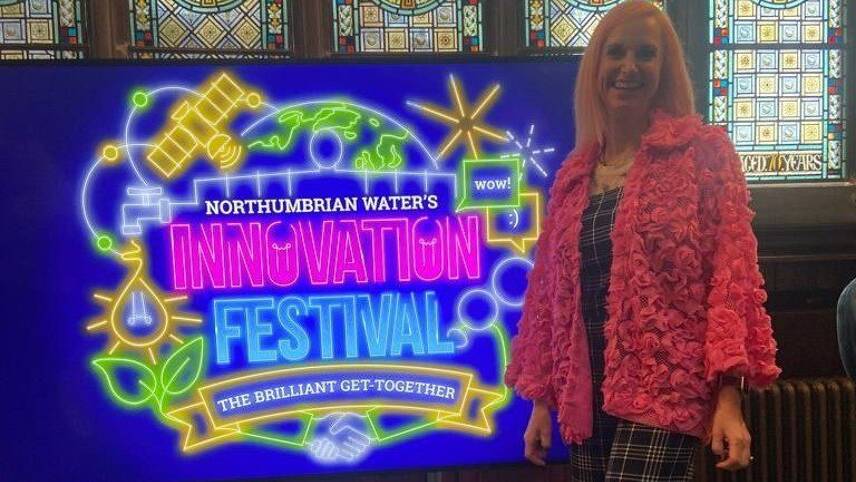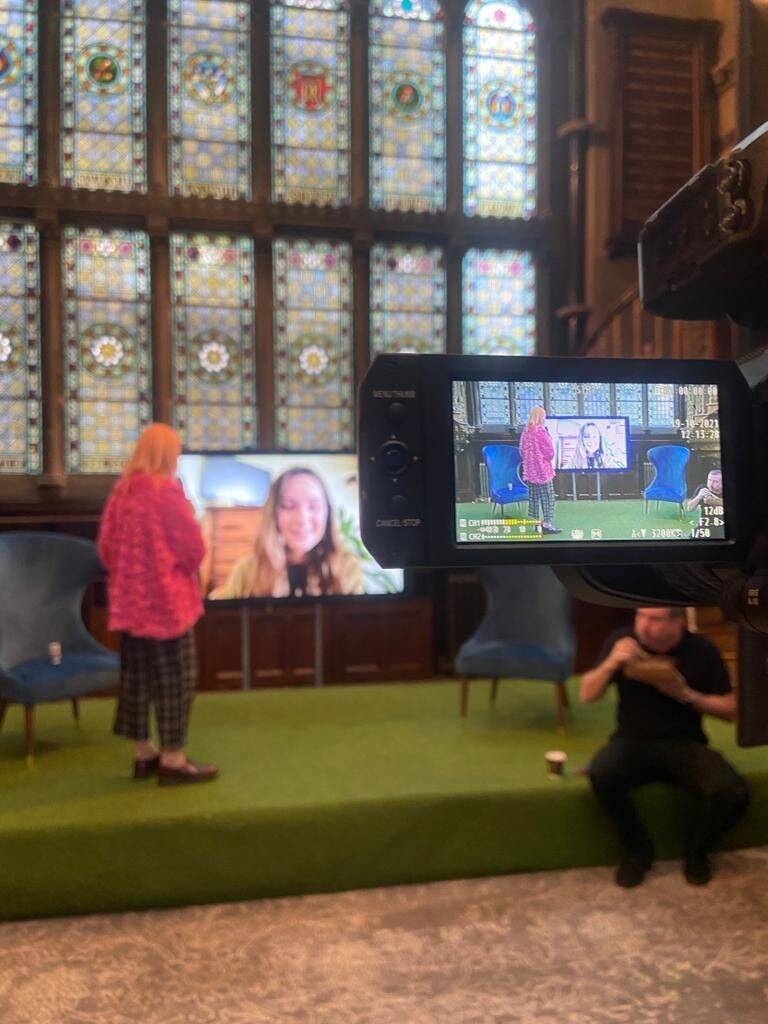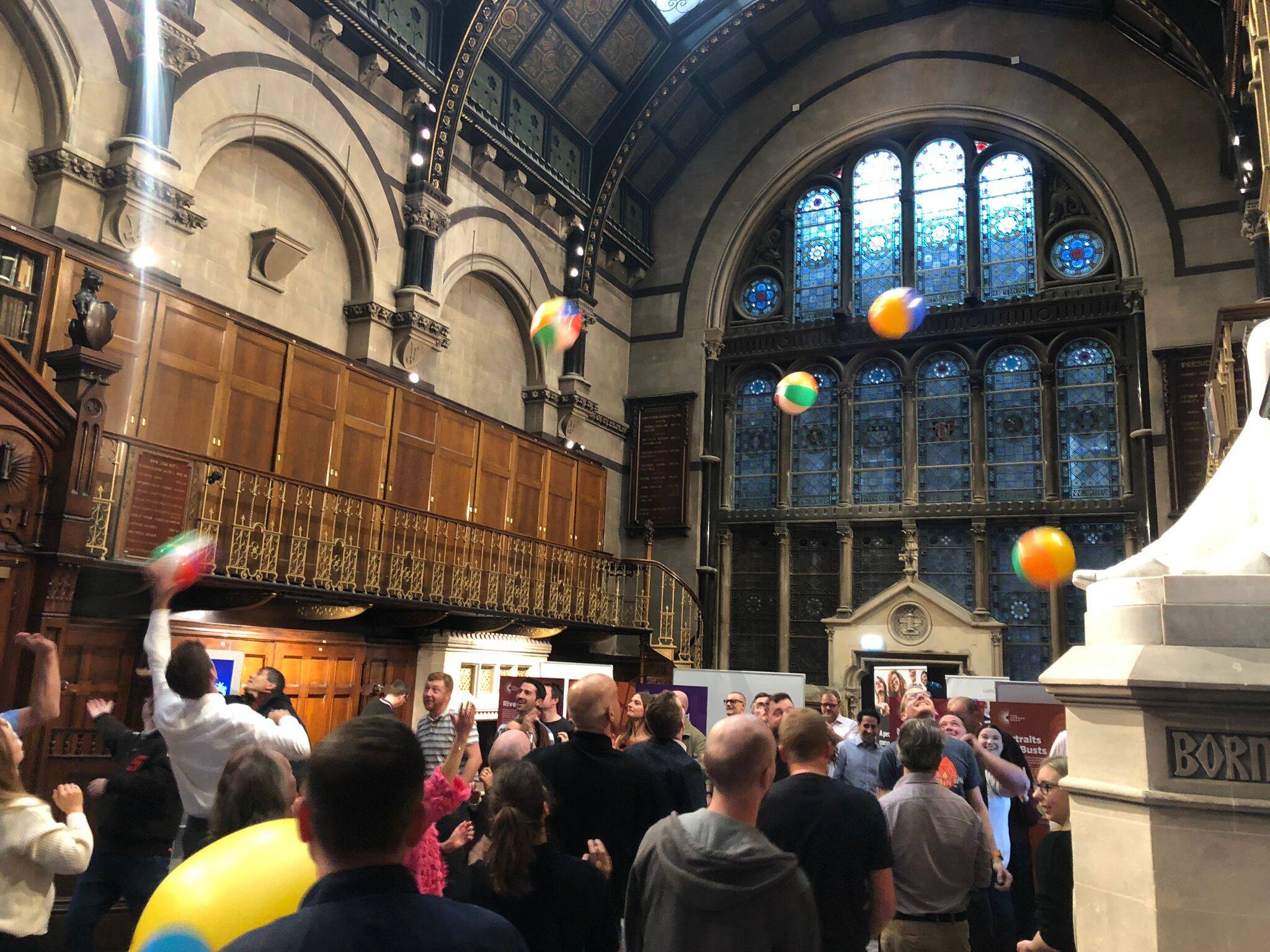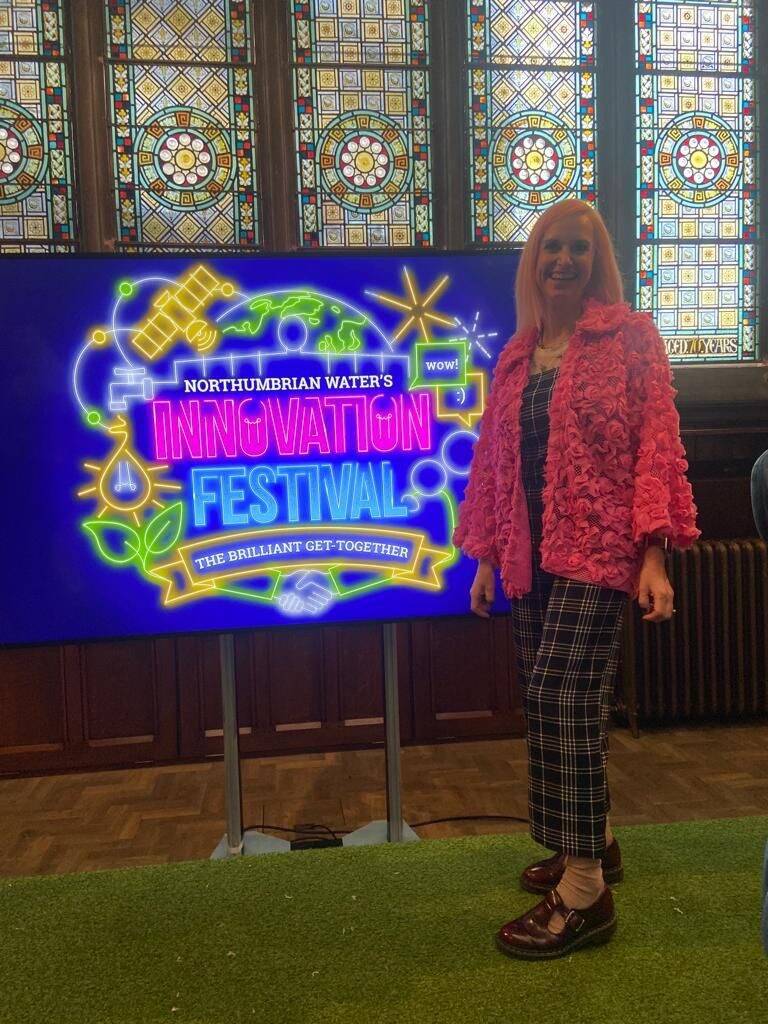You’ve reached your limit!
To continue enjoying Utility Week Innovate, brought to you in association with Utility Week Live or gain unlimited Utility Week site access choose the option that applies to you below:
Register to access Utility Week Innovate
- Get the latest insight on frontline business challenges
- Receive specialist sector newsletters to keep you informed
- Access our Utility Week Innovate content for free
- Join us in bringing collaborative innovation to life at Utility Week Live

Utility Week Innovate caught up with Northumbrian Water’s head of innovation for a quickfire Q&A covering water sector creativity, collaboration and not believing the hype on day one of the firm’s 2021 Innovation Festival.
How long have you been working in the utilities sector for? “I’ve spent almost three years in the utilities sector, but I’ve got 17 years of experience in fast moving goods. I think that it’s been really positive me not being a water sector expert – or a utilities expert – to come in and do the innovation job because I’ve been able to bring a different network, way of working, and mindset which I think has been very much needed in the water sector to shake things up a little bit.”
What experience or qualifications did you have before moving into the industry? “I’m a PhD chemist and I actually started out in automotive – I did an apprenticeship at Shell working in lube oils and then did my PhD working for Volvo. Then I moved to Procter and Gamble and worked there for 17 years on fast moving goods.”
 What has been your career highlight thus far? “It has to be Bold Lavender and Chamomile. If you peruse the shelves in the UK, and indeed many places around the globe, you will see Bold Lavender and Chamomile – that was my idea. Nobody told me to work on it, I had listened to insights about the freshly made bed and clean towel moments and manifested that into a product. It’s still on the shelves today – 22 years after its launch.”
What has been your career highlight thus far? “It has to be Bold Lavender and Chamomile. If you peruse the shelves in the UK, and indeed many places around the globe, you will see Bold Lavender and Chamomile – that was my idea. Nobody told me to work on it, I had listened to insights about the freshly made bed and clean towel moments and manifested that into a product. It’s still on the shelves today – 22 years after its launch.”
- Hear Angela MacOscar, head of innovation at Northumbrian Water, discuss how collaboration and openness are key to working together at Utility Week Live, 17-18 May 2022. Register here for free.
What is the most significant way that today’s utilities sector differs from the one you first joined? “The conversation and opportunity around collaboration is so much better than it was when I first joined. I really feel that across the UK water sector we have very similar – if not the same – challenges and we need to be working together. I couldn’t understand why we weren’t. However, I’m really seeing a huge step change in the richness of conversations and in the willingness to collaborate, which really positive.”
What is your golden rule for overcoming work related challenges? “I think a golden rule is to never burn your bridges and always bring people with you. I’m very much a hearts and minds person so I would rather people come along, or want to do what you want to do, rather than inflicting it on people. I also think that creating a safe environment to work is really important, because failure is part of what we do in innovation. We will fail, and we need to create the right culture so that rather than it being a negative, people are not afraid to learn from failing.”
How would you describe your creative process in three words? “Messy. Exciting. Collaborative.”
 What’s the best piece of advice you’ve been given? “The best piece of advice I’ve been given is probably ‘don’t believe the hype’. Always be genuine and authentic. Don’t start to believe that you are better than everybody else. We are all the same, and it’s definitely best to embrace people, be kind and be collaborative.”
What’s the best piece of advice you’ve been given? “The best piece of advice I’ve been given is probably ‘don’t believe the hype’. Always be genuine and authentic. Don’t start to believe that you are better than everybody else. We are all the same, and it’s definitely best to embrace people, be kind and be collaborative.”
What do you think Utility Week Innovate readers would be surprised to learn about you? “I’m a black belt in taekwondo.”
Which piece of technology, or app, could you not function without? “I’d have to say that I’m pretty glued to my phone – which is terrible. I love Instagram and get a lot of inspiration and information from there. Also music, which is something that I feel helps the creative process.”
Which other industry do you feel that utilities can learn most from when creating the conditions for innovation? “I genuinely believe that innovations happen at the edges – that’s where the sparks fly. So this year at our festival we’re doing a sharing session with the nuclear sector. Medicine is another one to learn from, space too – anybody that is further ahead and invests more in research and development than we do in our sector are the people we need to talk to, because there will be technologies and solutions there that we can pinch with pride and put in the water sector.”
 Is there a standout innovation or collaboration project that you’ve worked on during your time in utilities – what made it special? “The one that stands out the most would be the National Underground Asset Register that actually popped out of one of the first Innovation Festivals that we had. It’s now a fully-fledged project supported by the UK government that has managed to bring millions of pounds in funding and is worth £1.2 billion to UK PLC in terms of stopping injuries and disruption through accidental utility strikes. Very proud of that one.”
Is there a standout innovation or collaboration project that you’ve worked on during your time in utilities – what made it special? “The one that stands out the most would be the National Underground Asset Register that actually popped out of one of the first Innovation Festivals that we had. It’s now a fully-fledged project supported by the UK government that has managed to bring millions of pounds in funding and is worth £1.2 billion to UK PLC in terms of stopping injuries and disruption through accidental utility strikes. Very proud of that one.”
What excites you most about the next 10 years in the utilities sector – any trends, tech or specific innovations? “The pace of change and the ripeness of opportunity because we have three massive challenges in our sector. We have climate change – which we can’t fix but have to find solutions to manage from our side. We also have an aging infrastructure which needs to managed and increased demand and increased customer expectations. So for me, as an innovator I am so excited by the possibility because we have huge challenges that need innovation.”
What is the most significant way you think the utilities sector of ten years’ time will differ from the one we see today? “I think today we are reacting to things that happen whereas in 10 years’ time we will be proactive. I think that there will be a total shift in how we manage the problems that we have because we’ll have increased visibility on our network from all sorts of different sources meaning that we’ll be able to provide a very different service.”
See this content brought to life at Utility Week Live, 17-18 May 2022 NEC Birmingham. FREE to attend for utilities. Register today
Delivering smart water networks is one of the frontline challenges at the heart of Utility Week Live 2022’s live content programme. View the programme.


Please login or Register to leave a comment.